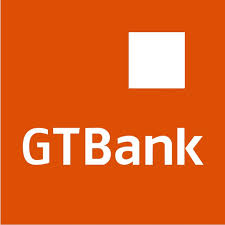brand
GTBank Sustains Growth Momentum
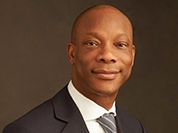

With profit after tax of N142 billion, total assets of N4.6 trillion and shareholders’ funds of N755.5 billion for the nine months ended September 30, 2020, Guaranty Trust Bank Plc has recorded an impressive performance, writes Goddy Egene
Shareholders of Guaranty Trust Bank (GTBank) Plc heaved a big sigh of relief last week after the bank announced its nine months results ended September 31, 2020. The bank reported a performance that was commendable considering the operating environment that prevailed in the review period.
The economy has suffered from the COVID-19 induced lockdown and companies operating are expected to feel the negative impact. Hence, there were apprehension over what the financial results of listed companies, including banks, would look like at the end of third quarter (Q3).
However, GTBank reported a resilient results, showing growth in most performance metrics. The bank recorded a net income of N188 billion, up from N173 billion in the corresponding period of 2019. Net fee income stood at N33 billion, compared with N47 billion in 2019. Loan impairment charges soared by 267 per cent from N2.762 billion to N10.145 billion in 2020.
GTBank ended the nine months with a profit before tax (PBT) of N167.352 billion as against N170.652 billion in 2019, and profit after tax of N142.283 billion compared with N146.989 billion in 2019.
GTBank’s balance sheet remained well structured, diversified and resilient with total assets and shareholders’funds printing at N4.574 trillion and N755.5 billion respectively. Full impact capital adequacy ratio (CAR) remained very strong, closing at 23.9 per cent. Similarly, asset quality was sustained as non-performing loan(NPL) ratio and cost of risk (COR)closed at 6.5 per cent and 0.6 per cent in September 2020 from 6.5 per cent and 0.3 per cent in December 2019 respectively.
In all, GTBank Plc continues boast of the best performing indicators in terms of all financial ratios including: post-tax return on equity (ROAE) of 26.3 per cent, post-tax return on assets (ROAA) of 4.6 per cent, and cost to income ratio of 40.2 per cent.
Commenting on the performance, the Managing Director/CEO of GTBank Plc, Mr. Segun Agbaje, said: “Our third quarter (Q3) result is a reflection of how we have appropriately positioned our balance sheet to cope with current economic realities and the challenging business environment. It is also testament to the enduring loyalty of our customers, the hard work and dedication of our staff and the unwavering support we continue to enjoy from all our stakeholders in our drive to deliver best-in-class financial services and superior and sustainable returns.”
According to him, as an organisation, “we will continue to build on our commitment to enriching lives by leveraging our digital-first customer-centric strategy to improve customer experience and maintain a high standard in service delivery, and going beyond banking to create and drive innovative financial solutions that add value to our customers in all aspects of their lives.”
Assessing the results, analysts at FBNQuest Research said GTBank’s 9M PBT of N167bn implies that the bank will have to deliver Q4 PBT of N68 billion to meet its full year guidance of N235 billion.
“While this is not impossible, we believe that it would be a stretch given the prevailing macroeconomic and low yield environment. Management was unwilling to revise its guidance on its Q2 2020 conference call. As such, it appears the bank’s current run-rate is more in line with our N229 billion full year PBT forecast. Further down the profit and loss (P&L), PAT missed by 12 per cent, largely because of a negative result of -N4.4 billion in other comprehensive income (OCI). Despite this, the bank’s PAT still implies a healthy annualised ROAE of 28.9 per cent, ahead of its full year ROAE guidance of over 25 per cent. We expect a neutral reaction from the market following the limited surprises on the results,” they said.
Speaking only on the third quarter(Q3) result, FBNQuest said Q3 PBT grew five per cent to N57.6 billion on the back of six per cent increase in pre-provision profit and two per cent reduction in operations expenses(opex). Pre-provision profit growth was driven by 10 per cent increase in funding income, thanks to a sharp reduction in interest expense.
In bid to sustain its impressive performance and deliver returns to shareholders, the bank is proposing to diversify into payment service banking (PSB), asset management business and pension administration among others. This the bank hopes to achieve through the adoption of a holding company (HoldCo) structure.
The Central Bank of Nigeria (CBN) has given the bank an approval-in-principle to commence the transform into HoldCo structure. According to the bank, reorganisation is expected to be implemented by means of a scheme of arrangement with its shareholders pursuant to the Companies and Allied Matters Act.
Agbaje explained that the competitive landscape as it were for the non-core banking businesses didn’t warrant the bank retaining the subsidiaries and pushing it into adopting the HoldCo model.
He said: “We got our universal banking license in 2001. But you will remember that when the financial crisis happened, universal banking license was cancelled and the CBN decided that you either stay as a bank, or you went into a holding company structure.
“At the time, because the competitive landscape was very different from what it is today, we decided that we were going to focus on our banking business, and it was the right decision for us then. Because we went from number seven in profit to number one, some years, we have been number two, but basically, we have been number one most of the years.”
The MD/CEO said while it was the right decision to take at that time, he added that the competitive landscape today has necessitated diversifying the banking earnings, hence, the decision to go the HoldCo way.
“When you look at what is happening to banking, or you look at what I’ve been describing to you, and the people who are basically looking to take banking income, it is time to diversify our earnings. The only way you can legally diversify your earnings in Nigeria today is going into a holding company structure, because as a pure bank, you cannot do more than banking,” he said.
According to Agbaje, the bank proposes to diversify into payment service banking (PSB), asset management business and pension fund administration (PFA). He explained that this diversification would not distract its core banking business.
It envisages to go greenfield with the PSB while seeking to acquire an asset management company and a PFA. Nevertheless, if acquiring these companies are expensive, the bank has the option of going Greenfield with them. And for now, is not looking the way of insurance business, even though it is not foreclosing the idea of operating the business in the future.
Agbaje stressed that poised to take advantage of opportunities inherent in the HoldCo arrangement, GTBank has therefore looked at some sectors that “create great synergies for it to create great opportunities.”
“We looked at some sectors, which we think today create great synergies for us and create great opportunities. The first one is payments. We love the payment landscape, you can see what is happening with FinTechs, we think we should compete with the FinTechs, we think we should grow the business, and that it is definitely a business for the future. And so it’s a place we would like to play to diversify the earnings base of the bank. We like asset management. The reason we like asset management is that it complements our business, we’ve grown a very good retail business today. Sometimes when people want a higher yield, then we lose that money to other institutions. But, we will create our own asset management company so that when the retail money looking for yield leaves us, it goes to someone that is in our ecosystem, and we consolidated profit and loss. A system where you can do payments, you can do asset management, once you come into your bank ecosystem is what we are beginning to build,” he said.
Talking on the PFA, Agbaje said the PFA business is continuing to grow. Hence the need to focus on it and benefit from it.
“And essentially what we are trying to do is do as much as we can for the customer base that we have. And we think that this is a good place to start and that this will diversify our earnings base and create value. The go to market plan for this is very simple. I have started to tell you about the first one, which is the diversifying to what we think of complementary businesses and services, payments, asset management, and PFA for today, there might be other businesses, the people like the one I always hear about is insurance. But I think that if we are going to be dominant in the businesses that we have picked, it is better we focus and we stop with those. And then maybe one day down the road if we’re very successful with everything else, we can look at insurance. We are also going to face our core banking business we are never going to let that drop because GTBank Nigeria continues to be the mother ship for us, and apart from our corporate business which is very strong, which will continue to hold, we will make sure that we continue to deepen our retail and SME business,” he said.
brand
GTCO Plc Becomes the 1st Financial Services Institution in West Africa to Achieve Listing and Trading of its Ordinary Shares on the London Stock Exchange
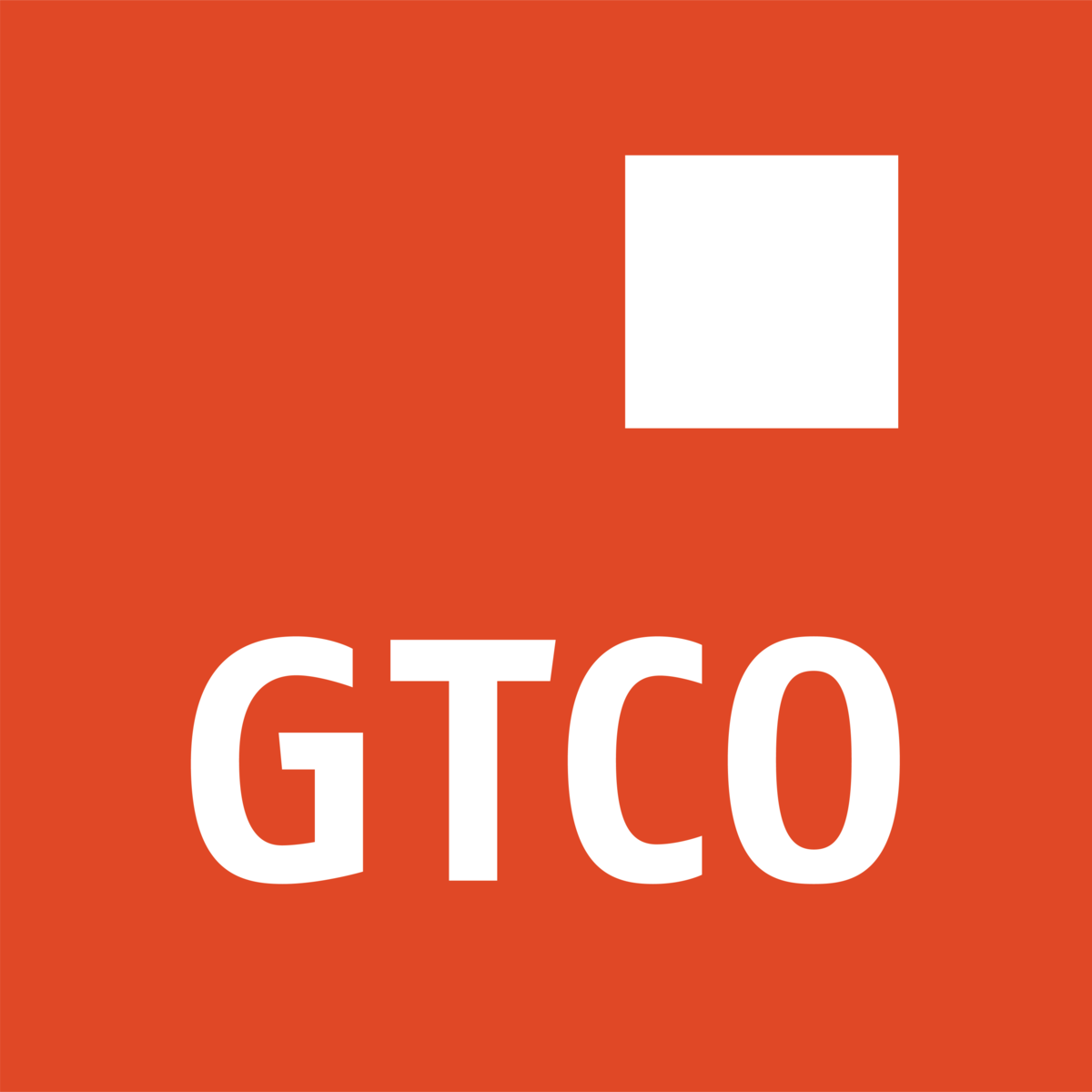
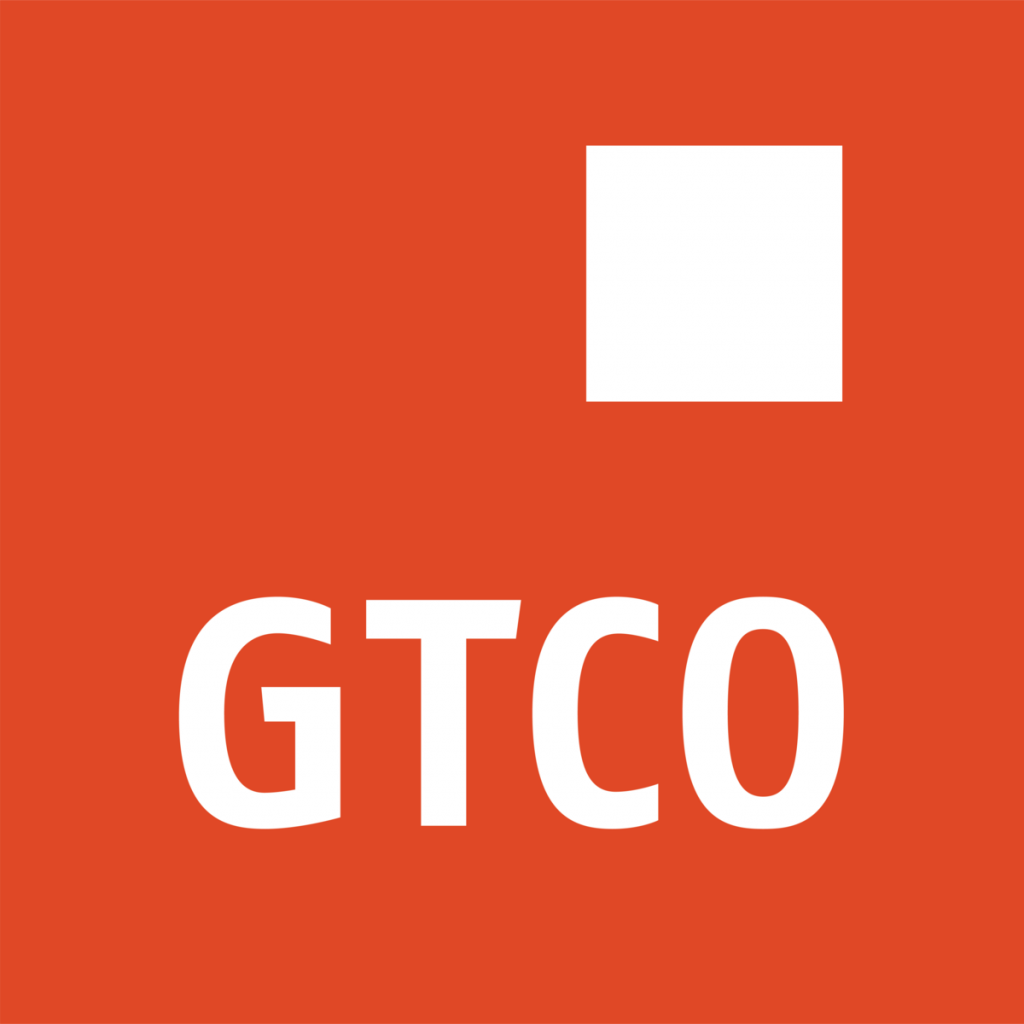 Guaranty Trust Holding Company Plc (GTCO Plc), Africa’s leading and most profitable Financial Services Group, has recorded a significant milestone in its growth and expansion journey with the successful admission of its Ordinary Shares to the Equity Shares (International Commercial Companies Secondary Listing) category of the Official List of the Financial Conduct Authority (FCA) and to trading on the main market for listed securities of the London Stock Exchange.
Guaranty Trust Holding Company Plc (GTCO Plc), Africa’s leading and most profitable Financial Services Group, has recorded a significant milestone in its growth and expansion journey with the successful admission of its Ordinary Shares to the Equity Shares (International Commercial Companies Secondary Listing) category of the Official List of the Financial Conduct Authority (FCA) and to trading on the main market for listed securities of the London Stock Exchange.
This historic achievement makes GTCO Plc, the 1stFinancial Services Institution in West Africa to dual list its Ordinary Shares on both the Nigerian and London stock exchanges, and subject to certain criteria, it is expected that the Shares will be transferrable between the two exchanges.
The admission follows the successful pricing of its fully marketed offering (The Offering) on the London Stock Exchange to raise gross proceeds of $105million in exchange for 2.29 billion of new ordinary shares in the company, which was supported by a strong book of high-quality, long-term institutional investors.
Concurrent with the Offering, the Company also gave notice of its intention to cancel the listing of its existing GDRs on the certificates representing certain securities (depositary receipts) category of the Official List of the United Kingdom Financial Conduct Authority (“FCA”) and the admission to trading of GDRs on the London Stock Exchange’s main market for listed securities.
Building on the momentum of the successful first tranche of its equity capital raise programme in July 2024, which secured ₦209 billion, GTCO will deploy the proceeds from the Offering to strengthen its capital base, meet its recapitalization target, and fund strategic expansion across high-growth markets and priority sectors within and outside Nigeria.
It is expected that Admission and unconditional dealing in the Shares will become effective on or before 8.00 a.m. (UK time) on 9 July 2025 under the ticker “GTHC”. Following the cancellation of the GDRs listing, the Company intends to change the ticker symbol for the Shares from “GTHC” to “GTCO” and will issue a separate announcement in due course to that effect.
Commenting on the LSE Listing, the Group Chief Executive Officer of Guaranty Trust Holding Company Plc, Mr. Segun Agbaje, said: “Today marks a major milestone—not just for GTCO, but for the future we see for African financial institutions on the global stage. We are incredibly proud to be the 1stFinancial Services Institution in West Africa to list our ordinary shares on London Stock Exchange’s main market for listed securities, and even more honored by the trust placed in us by the investing community. For us, this was not just about raising capital. It was about validating the strength of our franchise, the clarity of our strategy, and the discipline with which we execute.”
He further said; “I would like to thank everyone who made this possible—our advisors and legal teams, our longstanding shareholders, the regulators both in Nigeria and in the UK, as well as the Nigerian government for creating an environment that supports our bold ambition and vision to be Africa’s leading financial services institution.”
GTCO’s fully marketed offering attracted long-term institutional capital, reflecting investor confidence in the Group’s fundamentals, governance, and strategic outlook. It also signals improving market sentiment, buoyed by ongoing economic reforms by the Federal Government and a return to traditional orthodox monetary policy by the Central Bank of Nigeria, which have gone a long way to stabilising the macroeconomic environment and gradually restoring investor confidence in Nigeria’s long-term prospects.
brand
ZENITH BANK RETAINS TOP SPOT AS NUMBER ONE BANK IN NIGERIA BY TIER-1 CAPITAL FOR THE SIXTEENTH CONSECUTIVE YEAR IN THE 2025 TOP 1000 WORLD BANKS’ RANKING
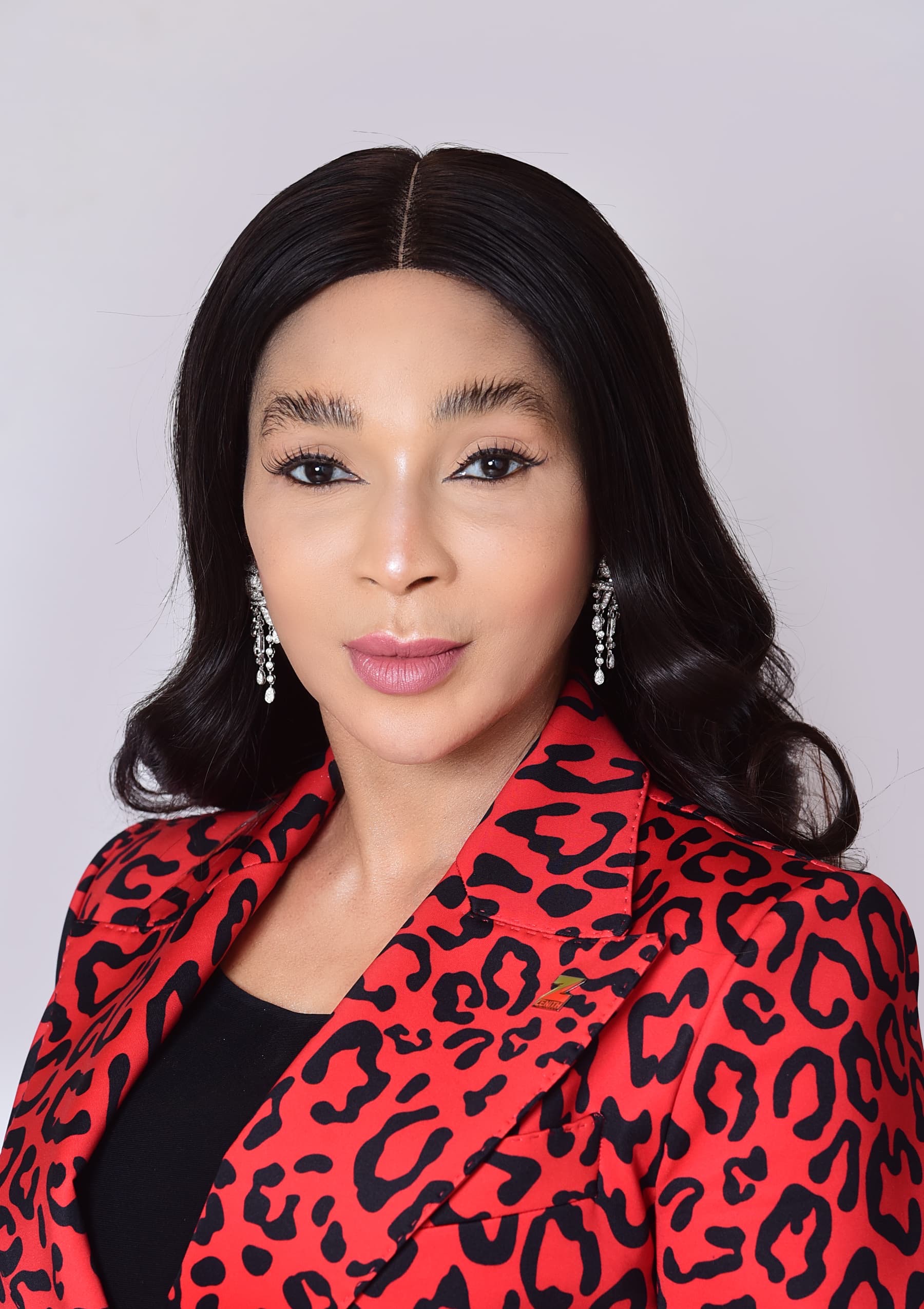
-
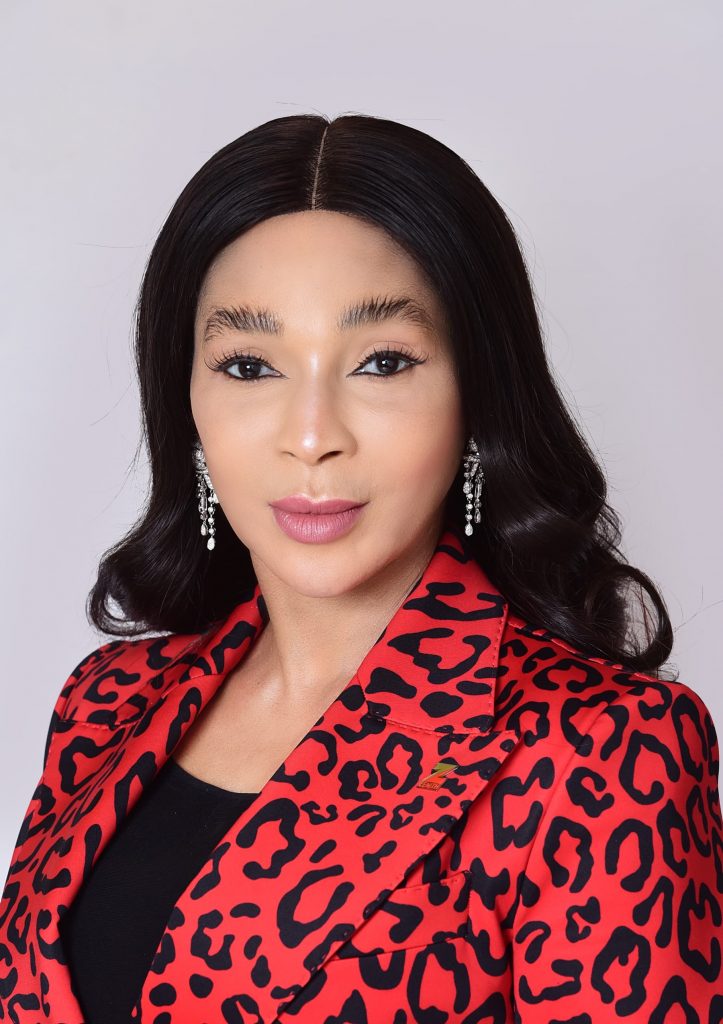 Zenith Bank Plc has retained its position as the Number One Bank in Nigeria by Tier-1 Capital forthe sixteenth consecutive year, in the 2025 Top 1000 World Banks’ Rankings, published by TheBanker,FinancialTimesGroup,UnitedKingdom.ThisrankingplacesZenithBankPlcasthe581st Bank globally, with a Tier-1 Capital of $2 billion.The global rankings, published inthe July 2025 edition of TheBanker, was based on the 2024year-end Tier-1capital ofbanks. Thisis theprimary basisformost internationalorganizations’assessments of banks.Commenting on this achievement, the Group Managing Director/CEO of Zenith Bank Plc, Dame(Dr.) Adaora Umeoji, OON, said, “We are thrilled to have retained our position yet again as theNumber One Bank in Nigeria by Tier-1 capital for the 16th consecutive year. This achievement isa reflection of the bank’s robust financial performance, prudent risk management and steadfastdedication to delivering exceptional value to our customers and stakeholders”. She thanked theFounder and Chairman, Jim Ovia, CFR, for his visionary and transformative leadership which hasplayedapivotalroleincultivatingaresilientandthrivinginstitution.Shealsoexpressedherdeepest appreciation to the bank’s esteemed customers for their continued loyalty to the Zenithbrand, the Board for the sound corporate governance, and the staff for their relentless & tirelessefforts in ensuring the bank’s success.Tier-1 Capital describes capital adequacy, the core measure of a bank’s financial strength from aregulator’sperspective.Accordingtotheranking,Tier-1Capital,asdefinedbytheBankforInternational Settlements(BIS) guidelines,includes loss-absorbingcapital, i.e.,common stock,disclosed reserves, retained earnings, and minority interests in the equity of subsidiaries that areless than whollyowned. A strongTier-1 capital ratio boostsinvestor and depositorconfidence,indicating the Bank is well-capitalised and financially stable.Accordingtotheaudited financialresultsforthe2024financialyearpresented totheNigerianExchange (NGX), the Bank recorded a double-digit growth of 86% in gross earnings, increasingfrom N2.13 trillion in 2023 to N3.97 trillion in 2024. This growth was driven by a 138% increase ininterest income, supported by investment in high-yield government securities, and growth in theBank’s loan book. Zenith Bank’s profit before tax (PBT) rose by 67%, reaching N1.3 trillion in 2024from N796 billion in 2023. This performance saw the bank record an unprecedented total dividendpayout of N195.67 billion at N5.00 per ordinary share in the 2024 financial year.Zenith Bank’s track record of excellent performance has continued to earn the brand numerousawards including being recognised as the Bank of the Year (Nigeria) in The Banker’s Bank of theYear Awards for 2020, 2022 and 2024; Best Bank in Nigeria from 2020 to 2022, 2024 and 2025,in the Global Finance World’s Best Banks Awards; Best Bank for Digital Solutions in Nigeria in the
Zenith Bank Plc has retained its position as the Number One Bank in Nigeria by Tier-1 Capital forthe sixteenth consecutive year, in the 2025 Top 1000 World Banks’ Rankings, published by TheBanker,FinancialTimesGroup,UnitedKingdom.ThisrankingplacesZenithBankPlcasthe581st Bank globally, with a Tier-1 Capital of $2 billion.The global rankings, published inthe July 2025 edition of TheBanker, was based on the 2024year-end Tier-1capital ofbanks. Thisis theprimary basisformost internationalorganizations’assessments of banks.Commenting on this achievement, the Group Managing Director/CEO of Zenith Bank Plc, Dame(Dr.) Adaora Umeoji, OON, said, “We are thrilled to have retained our position yet again as theNumber One Bank in Nigeria by Tier-1 capital for the 16th consecutive year. This achievement isa reflection of the bank’s robust financial performance, prudent risk management and steadfastdedication to delivering exceptional value to our customers and stakeholders”. She thanked theFounder and Chairman, Jim Ovia, CFR, for his visionary and transformative leadership which hasplayedapivotalroleincultivatingaresilientandthrivinginstitution.Shealsoexpressedherdeepest appreciation to the bank’s esteemed customers for their continued loyalty to the Zenithbrand, the Board for the sound corporate governance, and the staff for their relentless & tirelessefforts in ensuring the bank’s success.Tier-1 Capital describes capital adequacy, the core measure of a bank’s financial strength from aregulator’sperspective.Accordingtotheranking,Tier-1Capital,asdefinedbytheBankforInternational Settlements(BIS) guidelines,includes loss-absorbingcapital, i.e.,common stock,disclosed reserves, retained earnings, and minority interests in the equity of subsidiaries that areless than whollyowned. A strongTier-1 capital ratio boostsinvestor and depositorconfidence,indicating the Bank is well-capitalised and financially stable.Accordingtotheaudited financialresultsforthe2024financialyearpresented totheNigerianExchange (NGX), the Bank recorded a double-digit growth of 86% in gross earnings, increasingfrom N2.13 trillion in 2023 to N3.97 trillion in 2024. This growth was driven by a 138% increase ininterest income, supported by investment in high-yield government securities, and growth in theBank’s loan book. Zenith Bank’s profit before tax (PBT) rose by 67%, reaching N1.3 trillion in 2024from N796 billion in 2023. This performance saw the bank record an unprecedented total dividendpayout of N195.67 billion at N5.00 per ordinary share in the 2024 financial year.Zenith Bank’s track record of excellent performance has continued to earn the brand numerousawards including being recognised as the Bank of the Year (Nigeria) in The Banker’s Bank of theYear Awards for 2020, 2022 and 2024; Best Bank in Nigeria from 2020 to 2022, 2024 and 2025,in the Global Finance World’s Best Banks Awards; Best Bank for Digital Solutions in Nigeria in the -
Euromoney Awards 2023; and being listed in the World Finance Top 100 Global Companies in2023.Further recognitions include Best Commercial Bank, Nigeria for four consecutive years from 2021to2024intheWorldFinanceBankingAwardsandMostSustainableBank,NigeriaintheInternationalBanker2023and2024BankingAwards.Additionally,ZenithBankwasacknowledged as the Best Corporate Governance Bank, Nigeria, in the World Finance CorporateGovernance Awards from 2022 to 2024 and ‘Best in Corporate Governance’ Financial Services’Africa for four consecutive years from 2020 to 2023 by the Ethical Boardroom.The Bank’s commitment to excellence saw it being named the Most Valuable Banking Brand inNigeria in the Banker Magazine Top 500 Banking Brands for 2020 and 2021, Bank of the Year2023 and 2024 at the BusinessDayBanks and Other Financial Institutions (BAFI) Awards, andRetail Bank of the Year for three consecutive years from 2020 to 2022 and in 2024 at the BAFIAwards.TheBankalsoreceivedtheaccoladesofBestCommercialBank,NigeriaandBestInnovation in Retail Banking, Nigeria, in the International Banker 2022 Banking Awards.ZenithBankwasalsonamedMostResponsibleOrganisationinAfrica,BestCompanyinTransparency and Reporting and Best Company in Gender Equality and Women Empowermentat the SERAS CSR Awards Africa 2024; Bank of the Year 2024 by ThisDay Newspaper; Bank oftheYear2024byNewTelegraphNewspaper;andBestinMSMETradeFinance,2023byNairametrics. The Bank’s Hybrid Offer was also adjudged ‘Rights Issue/ Public Offer of the Year’at the Nairametrics Capital Market Choice Awards 2025
brand
Body of Bank CEOs Delivers Critical Relief to Flood Victims in Niger State, Pledges Continued Support

 Pix 1 L-R: Registrar & Chief Executive of the Chartered Institute of Bankers of Nigeria (CIBN) Akin Morakinyo; Managing Director and Chief Executive Officer of Keystone Bank Limited, Mr. Hassan Imam; Group Managing Director/Chief Executive, Zenith Bank, Dame (Dr.) Adaora Umeoji; The Executive Governor of Niger State, His Excellency, Governor Mohammed Umaru Bago; Chairman, Body of Bank CEOs and Group Managing Director/CEO, United Bank for Africa (UBA) Plc, Oliver Alawuba; Managing Director Taj Bank Mr. Hamid Joda; and Secretary to the Government of Niger State (SSG), Alhaji Abubakar Usman during the donation of relief materials from the Body of Bank CEOs in Nigeria, aimed at supporting victims of the recent devastating floods in Mokwa Local Government Area held at the Niger State House in Abuja at the weekend.
Pix 1 L-R: Registrar & Chief Executive of the Chartered Institute of Bankers of Nigeria (CIBN) Akin Morakinyo; Managing Director and Chief Executive Officer of Keystone Bank Limited, Mr. Hassan Imam; Group Managing Director/Chief Executive, Zenith Bank, Dame (Dr.) Adaora Umeoji; The Executive Governor of Niger State, His Excellency, Governor Mohammed Umaru Bago; Chairman, Body of Bank CEOs and Group Managing Director/CEO, United Bank for Africa (UBA) Plc, Oliver Alawuba; Managing Director Taj Bank Mr. Hamid Joda; and Secretary to the Government of Niger State (SSG), Alhaji Abubakar Usman during the donation of relief materials from the Body of Bank CEOs in Nigeria, aimed at supporting victims of the recent devastating floods in Mokwa Local Government Area held at the Niger State House in Abuja at the weekend.
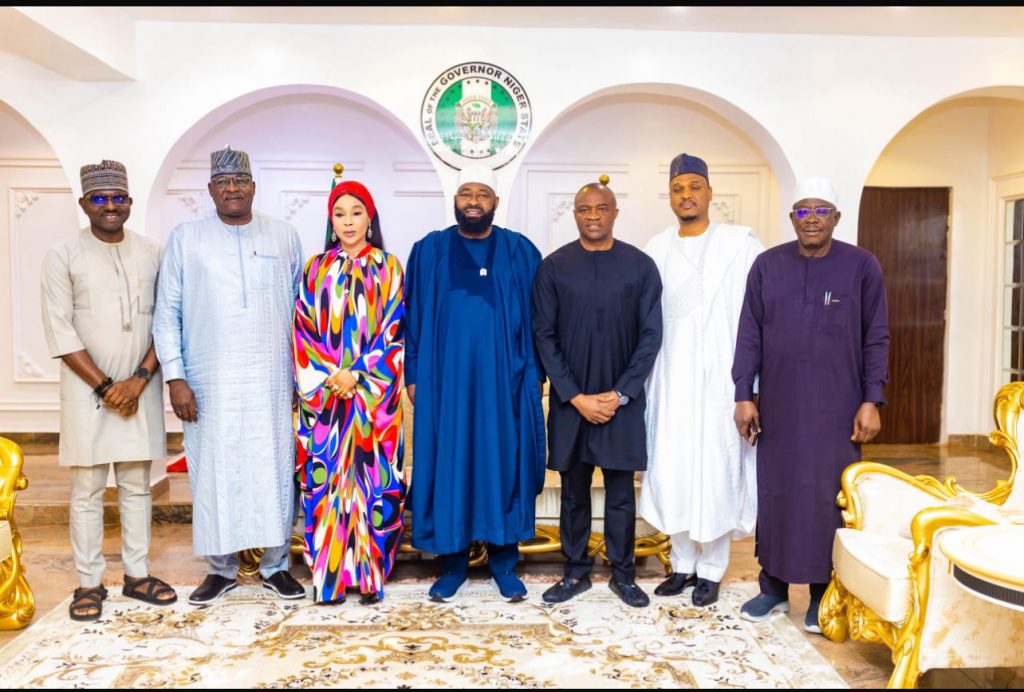 The Executive Governor of Niger State, His Excellency, Governor Mohammed Umaru Bago; Chairman, Body of Bank CEOs and Group Managing Director/CEO, United Bank for Africa (UBA) Plc, Oliver Alawuba during the donation of relief materials from the Body of Bank CEOs in Nigeria, aimed at supporting victims of the recent devastating floods in Mokwa Local Government Area held at the Niger State House in Abuja at the weekend
The Executive Governor of Niger State, His Excellency, Governor Mohammed Umaru Bago; Chairman, Body of Bank CEOs and Group Managing Director/CEO, United Bank for Africa (UBA) Plc, Oliver Alawuba during the donation of relief materials from the Body of Bank CEOs in Nigeria, aimed at supporting victims of the recent devastating floods in Mokwa Local Government Area held at the Niger State House in Abuja at the weekend
Pix 3: L-R: Managing Director and Chief Executive Officer of Keystone Bank Limited, Mr. Hassan Imam; Group Managing Director/Chief Executive, Zenith Bank, Dame (Dr.) Adaora Umeoji; The Executive Governor of Niger State, His Excellency, Governor Mohammed Umaru Bago; Chairman, Body of Bank CEOs and Group Managing Director/CEO, United Bank for Africa (UBA) Plc, Oliver Alawuba; and Managing Director Taj Bank Mr. Hamid Joda, during the donation of relief materials from the Body of Bank CEOs in Nigeria, aimed at supporting victims of the recent devastating floods in Mokwa Local Government Area held at the Niger State House in Abuja at the weekend.
In a heartwarming display of corporate social responsibility and solidarity, a consortium of Nigerian Bank CEOs, has pledged significant support to alleviate the suffering of flood victims in Niger State
The Executive Governor of Niger State, His Excellency, Governor Mohammed Umaru Bago on Saturday in Abuja received relief materials from the Body of Bank CEOs led by its Chairman, Mr Oliver Alawuba.
The gesture is aimed at supporting victims of the recent devastating floods in Mokwa Local Government Area of the state.
Oliver Alawuba who is also the Group Managing Director/CEO of United Bank for Africa(UBA), led the delegation to the Niger State Government house Abuja, where they presented essential relief items, including bags of rice, beverages, vegetable oil, and mattresses, valued at millions of naira.
The devastating floods, which have affected thousands of families in the region, have prompted the banking community to come together in a show of empathy and support to those displaced and affected by the disaster.
In his address, Alawuba expressed the banking industry’s deep sympathy for the affected communities and reaffirmed their dedication to sustainable support while pointing out that the gesture underscores the banking sector’s commitment to corporate social responsibility and humanitarian intervention especially in times of crisis.
He said, “Today, we stand with the people of Niger State in their time of need. We want you to know that we feel your pain and we give you our firm resolve to assist in rebuilding lives. This donation is just the beginning; we pledge continued collaboration with the Niger State Government to ensure long-term recovery and resilience.”
Other top CEOs and executives at the presentation included by the Group Managing Director/Chief Executive of Zenith Bank, Dame (Dr.) Adaora Umeoji, the Registrar and Chief Executive of the Chartered Institute of Bankers of Nigeria (CIBN), Mr. Akin Morakinyo, Managing Director and Chief Executive Officer of Keystone Bank Limited, Mr. Hassan Imam; Managing Director Taj Bank Mr. Hamid Joda; Secretary to the Government of Niger State (SSG), Alhaji Abubakar Usman senior government officials, banking executives, and media representatives, marking a significant step in public-private collaboration for humanitarian relief.
Governor Bago, who received the relief materials on behalf of the state, commending the banking sector for its timely intervention.
“This gesture reinforces the critical role of private-sector partnerships in disaster response,” Governor Bago stated. “We are grateful for this support and look forward to deeper collaboration in safeguarding our communities against future challenges. On behalf of the good people of Niger State, particularly the affected families in Mokwa, I extend our sincerest thanks for this timely and compassionate intervention,” Bago stated.
“The recent floods in the state brought immense hardship to the people, displacing families, destroying livelihoods, and disrupting communities and the banking sector, under the leadership of Alawuba and his esteemed colleagues, has demonstrated that beyond financial stewardship, they are true partners in national development and humanitarian service.
This donation is not just about the physical items; it is a symbol of hope, resilience, and the unwavering support of Nigeria’s financial institutions in times of need. It reassures our people that they are not forgotten, the governor stated.
…
-

 news5 years ago
news5 years agoUPDATE: #ENDSARS: CCTV footage of Lekki shootings intact – Says Sanwo – Olu
-

 news2 years ago
news2 years agoEnvironmental Pollutions : OGONI COMMUNITY CRIES OUT, THREATENS TO SHUT DOWN FIRSTBANK,SHELL OIL COMPANY OPERATIONS FOR NOT PAYING COURT AWARD
-

 lifestyle5 years ago
lifestyle5 years agoFormer Miss World: Mixed reactions trail Agbani Darego’s looks
-

 health4 years ago
health4 years agoChairman Agege LG, Ganiyu Egunjobi Receives Covid-19 Vaccines
-

 lifestyle4 years ago
lifestyle4 years agoObateru: Celebrating a Quintessential PR Man at 60
-

 politics3 months ago
politics3 months agoBreaking : Oborevwori , Okowa others dumps PDP, defects to APC
-

 health5 years ago
health5 years agoUPDATE : Nigeria Records 790 new cases of COVID-19
-

 news2 months ago
news2 months agoBREAKING: Tinubu swears in new NNPCL Board

